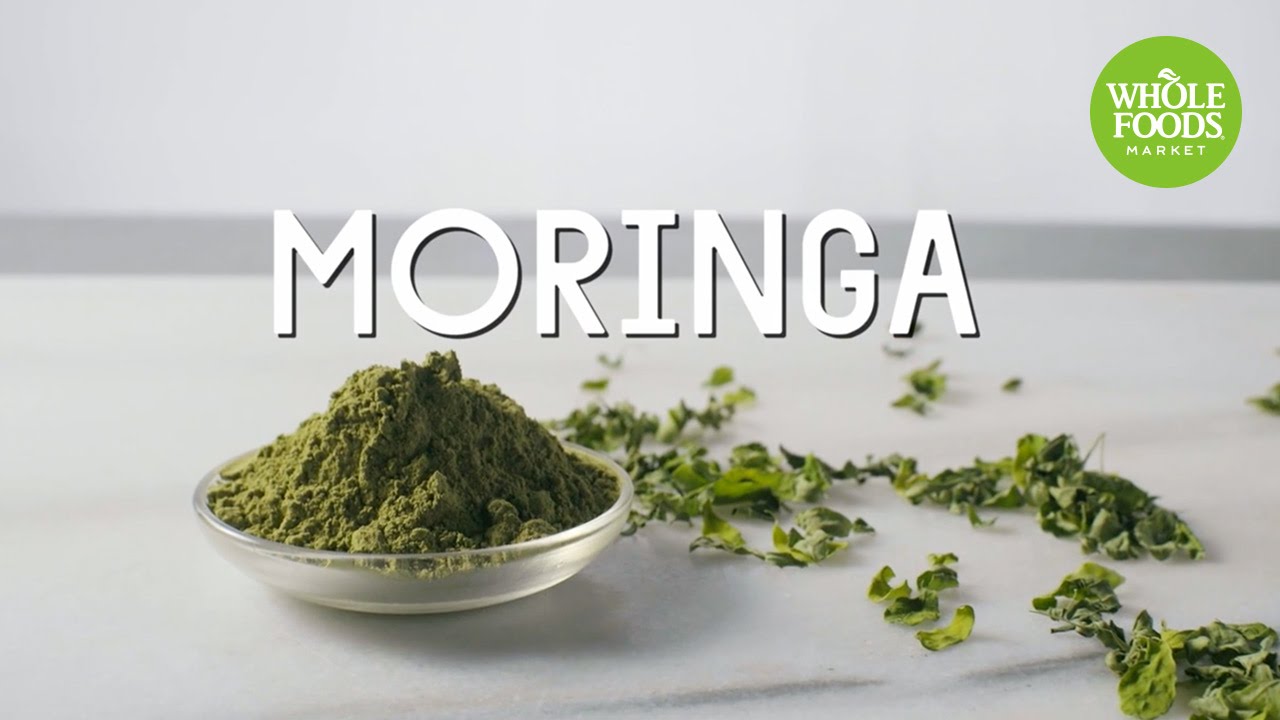The most widely cultivated species is Moringa oleifera, a multipurpose tree native the southern Himalayas, and grown in places like India, Indonesia, Thailand and Africa as a food source. The leaves, roots, seeds and seedpods (called drumsticks) are all eaten in various ways across South Asia. There are 13 species from tropical and subtropical climates that range in size from tiny herbs to massive trees.
It’s not widely available in raw form here. In the US, this superfood is generally consumed as a powdered supplement or liquid shot. Whichever form you use, this humble leafy green adds a kick of iron, vitamin C and calcium to your drinks and dishes.
According to WedMD moringa has many benefits associated with it in the cultures that use it most.
Moringa is used for “tired blood” (anemia); arthritis and other joint pain (rheumatism); asthma; cancer; constipation; diabetes; diarrhea; epilepsy; stomach pain; stomach and intestinal ulcers; intestinal spasms; headache; heart problems; high blood pressure; kidney stones; fluid retention; thyroid disorders; and bacterial, fungal, viral, and parasitic infections.
Moringa is also used to reduce swelling, increase sex drive (as an aphrodisiac), prevent pregnancy, boost the immune system, and increase breast milk production (although it’s not medically confirmed and caution is always a good thing when breastfeeding!) Chemicals in the root, bark, and flowers can make the uterus contract, and this might cause a miscarriage so don’t consume while pregnant. Some people use it as a nutritional supplement or tonic.
Moringa is sometimes applied directly to the skin as a germ-killer or drying agent (astringent). It is also used topically for treating pockets of infection (abscesses), athlete’s foot, dandruff, gum disease (gingivitis), snakebites, warts, and wounds.
Moringa contains proteins, vitamins, and minerals. As an antioxidant, it seems to help protect cells from damage.
Oil from moringa seeds is used in foods, perfume, and hair care products, and as a machine lubricant.
Moringa is an important food source in some parts of the world. Because it can be grown cheaply and easily, and the leaves retain lots of vitamins and minerals when dried, moringa is used in India and Africa in feeding programs to fight malnutrition. The immature green pods (drumsticks) are prepared similarly to green beans, while the seeds are removed from more mature pods and cooked like peas or roasted like nuts. The leaves are cooked and used like spinach, and they are also dried and powdered for use as a condiment.
The seed cake remaining after oil extraction is used as a fertilizer and also to purify well water and to remove salt from seawater.

